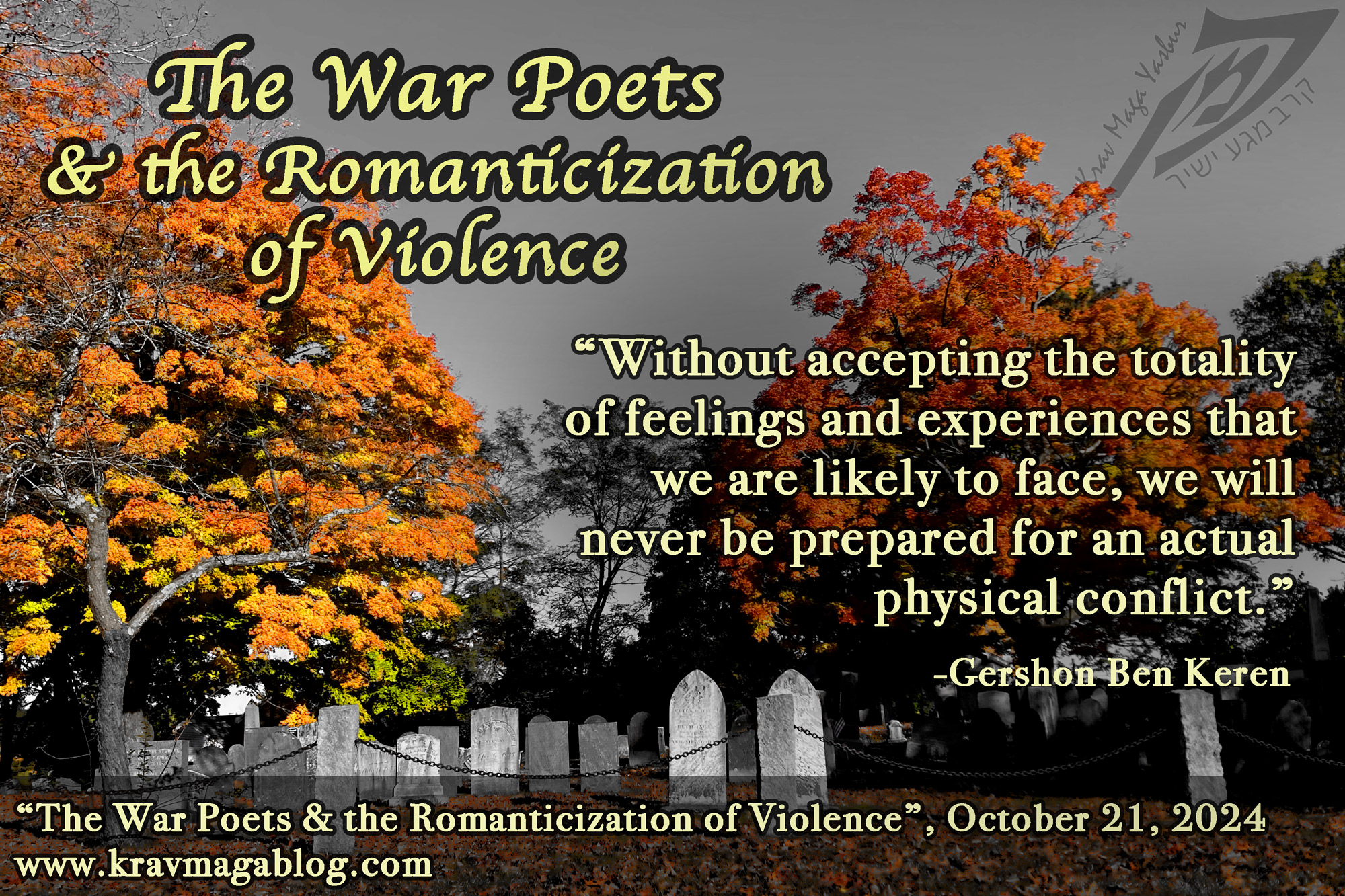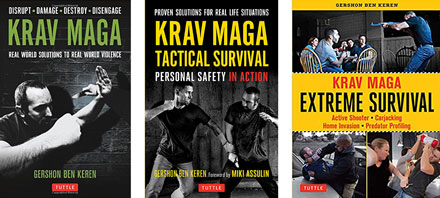The War Poets & the Romanticization of Violence

Violence is often sensationalized and/or sanitized; it is either portrayed as a glorious heroic battle or a normalized and sterile conflict. Self-deception prevents us from thinking about the dull thud of a shoe or boot repeatedly connecting with the head of a person as they lay unconscious on the ground – something I still hear/remember from a late-night gang fight I witnessed as a teenager in a Glasgow MacDonalds. Anyone who makes the argument that they have become “normalized” or “oblivious” to violence and aren’t affected by it etc., has lost part of their humanity; even when I was actively working in security and dealing with violent individuals, I found my experiences overall depressing rather than exhilarating e.g., why did people feel the need to engage in aggressive/violent behaviors when they were in a location/environment – a bar, club, or pub – which was engineered/designed to be a place of enjoyment/pleasure. However, for some reason violence is often romanticized and even glorified despite how it is experienced in reality. In the 1990’s I competed in some of the first MMA competitions in the UK. I was young and had the need/desire to see if what I “believed” worked in reality, would work when tested in a different environment. I quickly learnt that a cage/ring, even with minimal rules, was a very different environment to a crowded bar/pub, where there were no rules or defined outcomes, and which contained the ever-present possibility of multiple assailants and weapons, whether improvised or designed etc. Nobody at the end of a fight lifted your arm up and declared you a winner either to rapturous applause and/or a stream of negative boo’s etc. After dealing with one confrontation, you mundanely/routinely got on to dealing with the next, minus the applause. Having started working the door, almost straight from school, the unrealistic attitudes/perspectives of some the “War Poets” concerning violence – until they experienced it - that I’d studied in High School, started to make a little more sense.
Studying the “War Poets” is a standard/usual part of the UK High School English literature syllabus. The term “War Poets” refers to a group of poets who wrote about their experiences of the first world war. Their works often harbored a sense of disillusionment with violence and conflict that had at first, before and during the war, been romanticized and characterized by heroism and patriotism. Perhaps, the poet with the most romantic sense of war was Rupert Brooke, who never got to see any action, dying on a hospital ship on the way to Gallipoli. His poem, a sonnet, “The Soldier”, opens with the lines, “If I should die, think only this of me: That there’s some corner of a foreign field That is forever England.” It is easy to make the argument that the world was yet to be informed about and had not seen the new “technologies”, such as mass explosives, that would allow for killing on such a scale and because of this could excuse people’s naivety and romanticism concerning war. However, the destruction and brutality of “modern” warfare had been well documented during the American Civil War, some fifty years earlier. Newspapers of the time contained graphic photographs captured by the first war correspondents/photographs that showed/pictured the dirt, grime, blood and realities of warfare. Those individuals who in the early stages of the civil war went as spectators to battlefields expecting to see some type of real-life chess game unfold soon disappeared/evaporated after they witnessed the realities of volley fire and shrapnel shells etc.
That view of warfare that was still being romanticized in 1914/1915, shows the human inability to appreciate the true nature of extreme violence, even when there is ample evidence of it. However, those war poets who did see “action” and the horrors of war soon used their craft to document this. The poet, Siegfried Sassoon who survived the war, and went into politics afterwards, promoting pacifism, wrote about the psychological desperation that violence often brings. In the poem “To His Dead Body”, he writes, “When roaring gloom surged inward and you cried, groping for friendly hands, and clutched, and died”, captures the desperation that comes when you realize you have lost your power and control, and desperately look to/for others, to help, assist and remove you from the situation you are facing. In my time working club and bar security I have seen the looks on the faces of people who seem to be “drowning” as they take a beating realizing for the first time that they are completely out of their depth and need to rely on the assistance/help of others for their survival. We all have the ability to convince ourselves that we would be the ones to lead a charge, to dispense righteous justice to those that challenge us, and put on a display of fighting choreography that Jason Bourne would be proud of etc. It is easier and more comforting to think of managing violence in such a way, rather than contemplating all the negative feelings and potential sense of desperation that we have to overcome when dealing with a committed violent assailant. However, without accepting the totality of feelings and experiences that we are likely to face, we will never be prepared for an actual physical conflict.
The Samurai took a different approach to that of the war poets, in their early days of writing. Instead of focusing on the heroic, noble and romantic aspects of violence – if these actually exist – they meditated upon the idea of death, to the point that they were accepting of it. This meant they had no fear of it when the time for battle came; they had already “experienced” it. Whilst, I don’t think/believe that we need to that, we should accept that there may/will be times when dealing with violence that we won’t believe in our abilities to physically handle an incident, there may be times when we feel like we are drowning and want to give up on ourselves and start looking for others to solve the situation for us, and there may/will be times when we end up accepting the “inevitability” of our situation and want to give up etc. If we don’t think about experiencing such things and adopt a romanticized view of violence, we will end up like the war poets with many unanswered questions; they had a military structure and the time to contemplate the answers to them, in a real-life altercation no such time exists.
 If you enjoyed reading this article you may be interested to read Gershon Ben
Keren's Books (Click on images to go to his Amazon Author's Page). Or If you live in Boston or a surrounding city etc. you may want to sign up for a beginner class,
using the button below.
If you enjoyed reading this article you may be interested to read Gershon Ben
Keren's Books (Click on images to go to his Amazon Author's Page). Or If you live in Boston or a surrounding city etc. you may want to sign up for a beginner class,
using the button below.
Beginner Classes